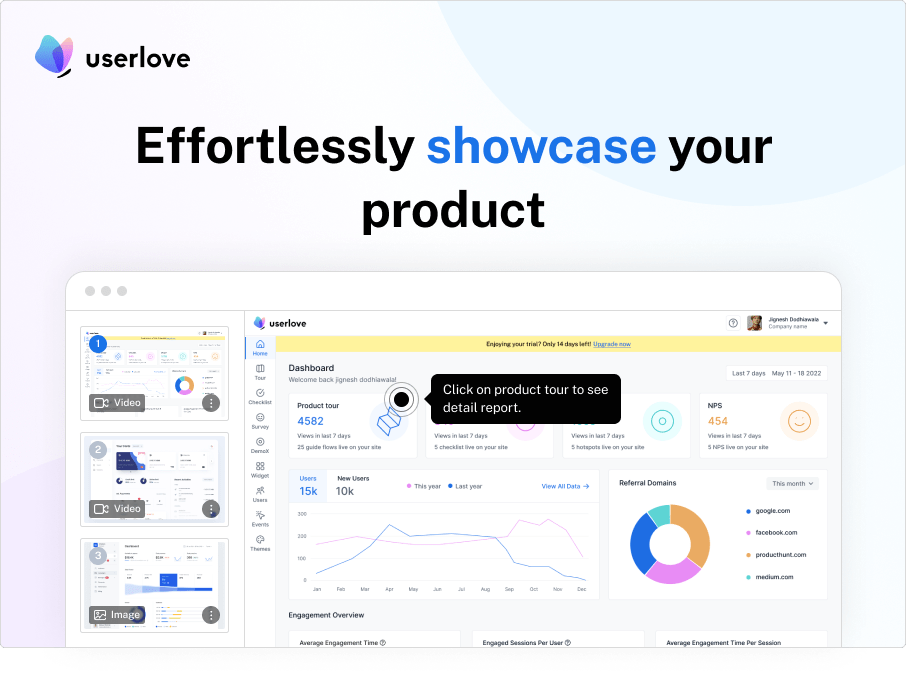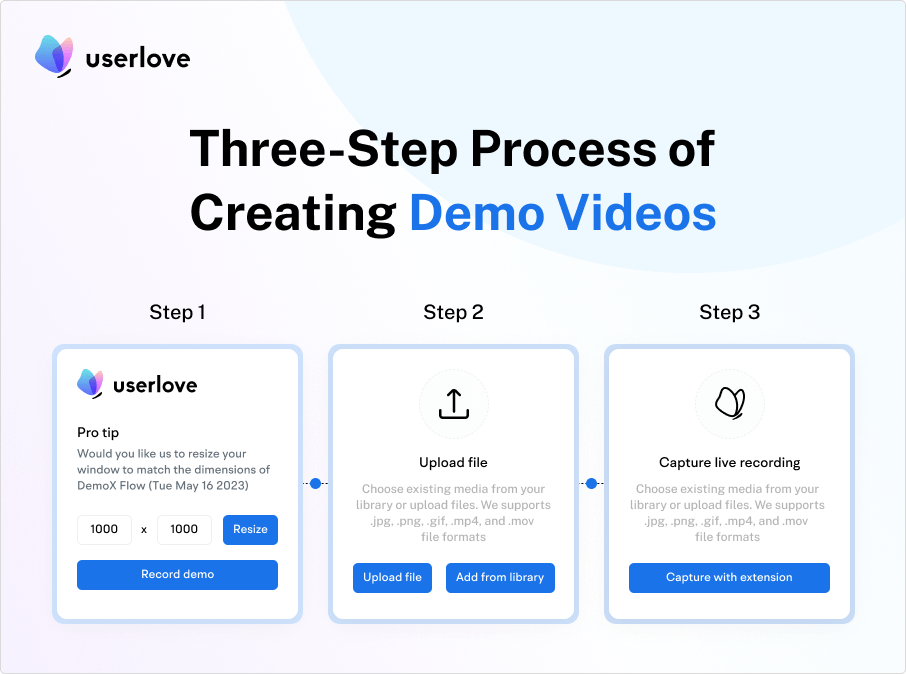- ProductsUserloveUserlove simplifies user onboarding, boosts engagement and accelerates adoption without requiring any coding skills.FEATURESSegmentationOptimizing user engagement through precise segmentation.Tooltip & HotspotHighlight key areas and provide specific information.TemplatesReady to use professional templates for quick start.ThemesCreate fantastic, personalized experiences that work well with the user interface of your product.EventsGenerate visualizations of data and events without coding.
- Use Cases
- ResourcesRESOURCES
- Pricing
- Contact Us
Top 11 In-App Live Chat & Bot Tools for Seamless User Engagement
Explore the ultimate list of the best 11 in-app chat and bot tools that revolutionize user engagement. Discover innovative solutions to enhance customer interactions and drive growth for your business.
List of most popular in-app chat and bot tools
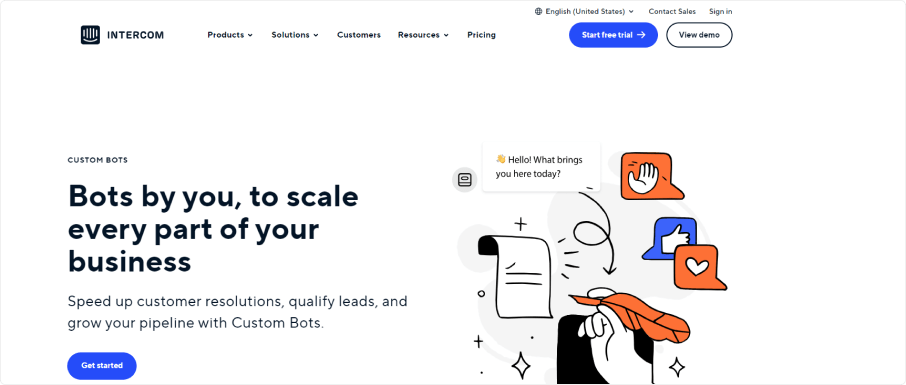
Intercom is a versatile in-app chat tool that enables real-time communication and engagement with users. It offers features like live chat, targeted messaging, automated campaigns, and seamless customer support integration.
Pros:
– Versatile features for real-time communication and engagement.
– Targeted messaging and automated campaigns.
– Seamless customer support integration.
Cons:
– Can be relatively expensive for smaller businesses.
– Learning curve for setting up and configuring advanced features.
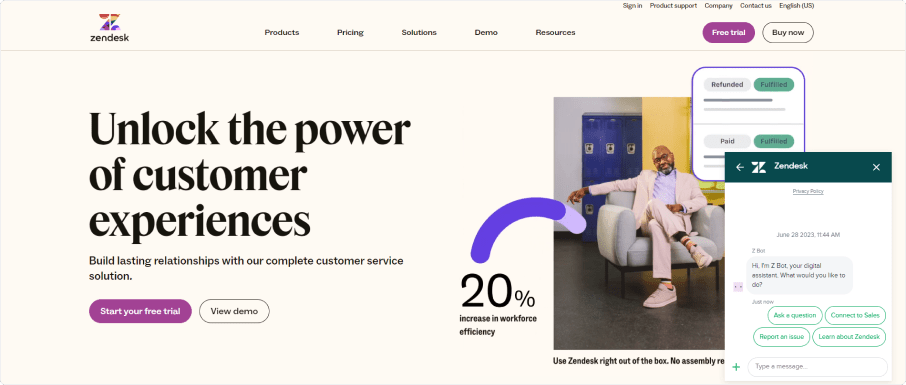
Zendesk Chat provides proactive and personalized support through its powerful in-app chat tool. It offers features such as live chat, chatbots, triggers, and comprehensive analytics to enhance customer interactions.
Pros:
– Proactive and personalized support.
– Powerful chatbots and triggers for automation.
– Comprehensive analytics for better insights.
Cons:
– Some advanced features may require higher-tier plans.
– Integration complexity with other Zendesk products.
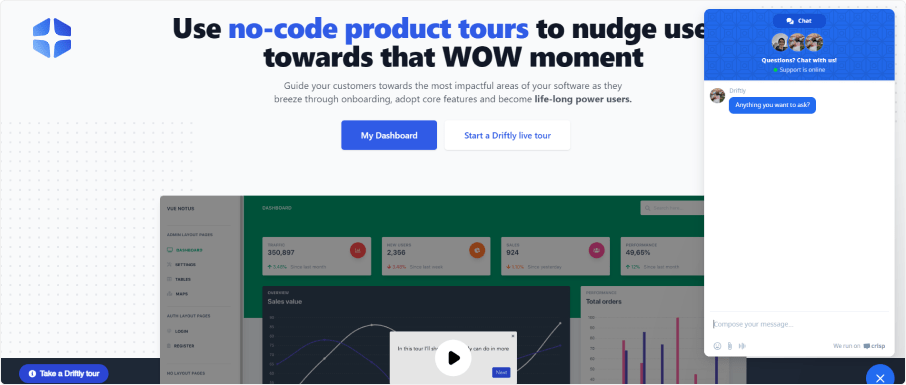
Drift is a conversational marketing platform with robust in-app chat capabilities. It enables lead engagement, meeting scheduling, and real-time user support through its intuitive chat interface.
Pros:
– Robust conversational marketing capabilities.
– Lead engagement and meeting scheduling.
– Intuitive chat interface for real-time support.
Cons:
– Might have limitations in terms of customization.
– Pricing can be on the higher side for certain features.
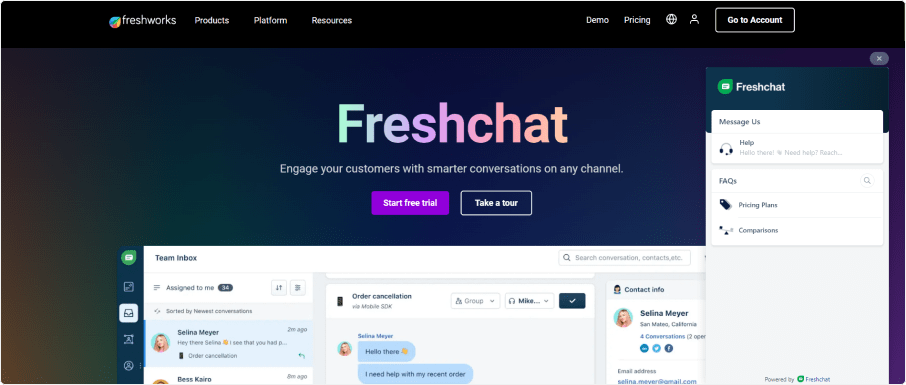
Freshchat is a customer messaging software that includes in-app chat functionality. It offers features like proactive messaging, chatbots, collaboration tools, and seamless integration with other platforms for streamlined customer communication.
Pros:
– Proactive messaging and chatbots.
– Collaboration tools for better team communication.
– Integration with various platforms.
Cons:
– Limited advanced automation compared to other platforms.
– Customization options might be less flexible.

LiveChat is a popular in-app chat tool that empowers businesses to provide instant support to their users. With features like live chat, chatbots, ticketing system integration, and customization options, LiveChat ensures efficient customer interactions.
Pros:
– Popular and reliable in-app chat tool.
– Customization options for chat appearance.
– Ticketing system integration for issue tracking.
Cons:
– Pricing can become costly with additional features.
– Advanced features might require technical expertise to set up.
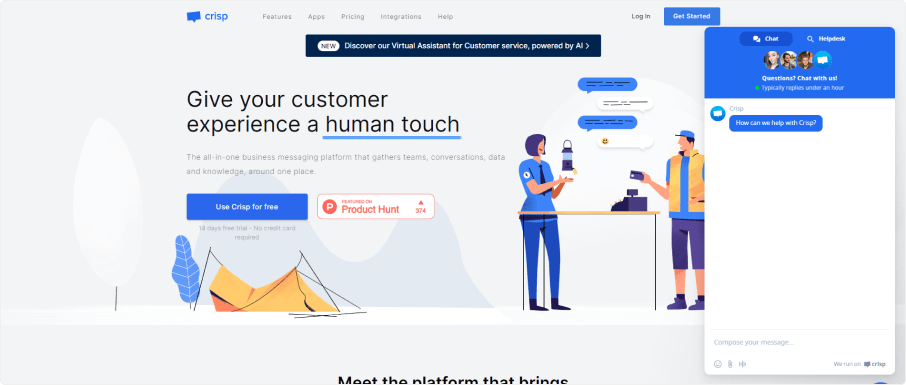
Crisp is a multi-channel customer messaging platform that incorporates in-app chat. It provides live chat, chatbots, user tracking, and integration with other business tools to facilitate seamless communication and support. Pros: – Multi-channel customer messaging platform. – User tracking and integration with business tools. – Chatbot capabilities for automation. Cons: – Some features might require higher-tier plans. – Initial setup and integration might take time.

Chatwoot is an open-source customer communication platform offering in-app chat capabilities. It provides live chat, team collaboration, chatbot integration, and API access, allowing for customization and enhanced user engagement.
Pros:
– Open-source platform for customization.
– Team collaboration and chatbot integration.
– API access for enhanced engagement.
Cons:
– Advanced customization might require technical skills.
– Limited official support compared to commercial platforms.
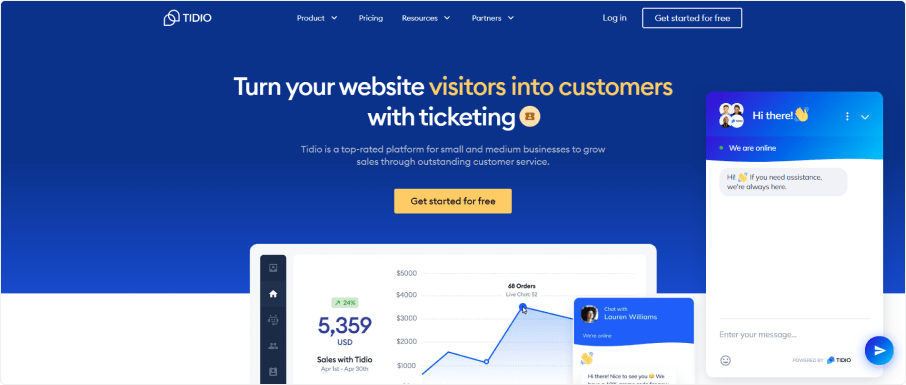
Tidio is a user-friendly chat tool that enables businesses to communicate with their website and app visitors. With features like live chat, chatbots, email marketing integration, and automation capabilities, Tidio enhances customer interactions.
Pros:
– User-friendly interface.
– Email marketing integration and automation.
– Chatbot capabilities for efficient communication.
Cons:
– Some advanced features may be lacking.
– Scalability limitations for larger businesses.
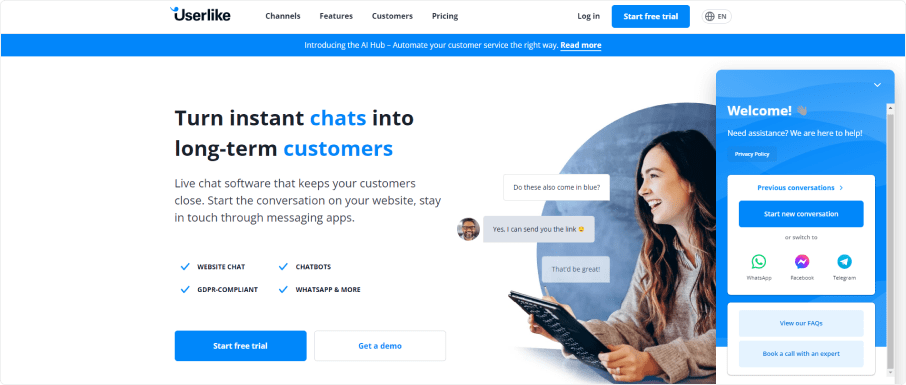
Userlike is a live chat software that allows businesses to have real-time conversations with customers. It offers features such as chat customization, chat ratings, visitor analytics, and CRM integration, ensuring effective customer engagement.
Pros:
– Real-time conversations and chat customization.
– Visitor analytics for better understanding.
– CRM integration for streamlined engagement.
Cons:
– Advanced features might require higher-tier plans.
– Limited integration options with other tools.
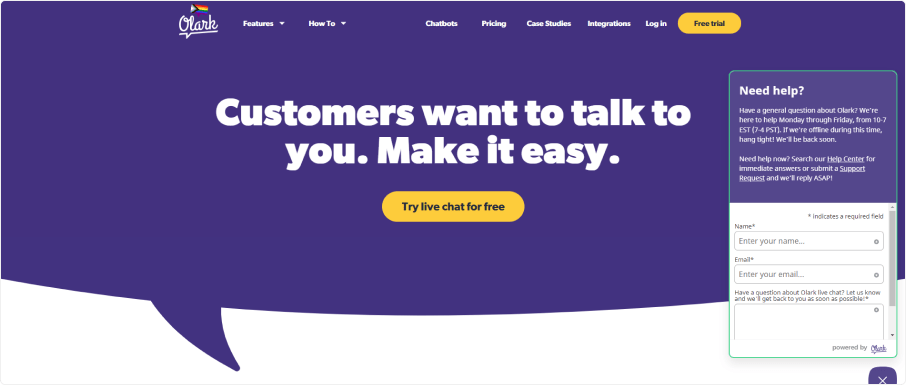
Olark is an easy-to-use in-app chat tool that facilitates communication with website visitors. It provides live chat, chat transcripts, visitor monitoring, and integration with popular CRM platforms for seamless customer support.
Pros:
– Easy-to-use interface for quick setup.
– Chat transcripts and visitor monitoring.
– Integration with popular CRM platforms.
Cons:
– Limited advanced features compared to other platforms.
– Might lack certain automation capabilities.
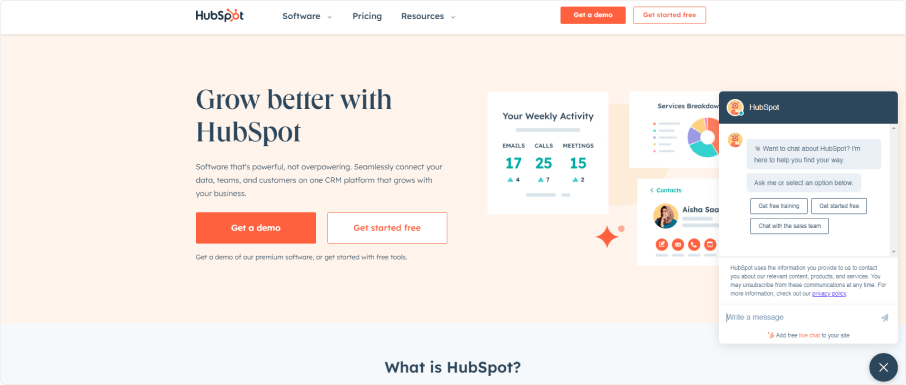
HubSpot Conversations, part of the HubSpot CRM platform, offers in-app chat functionality. It enables businesses to engage with website visitors and users through live chat, chatbots, ticketing system integration, and advanced reporting and analytics.
Pros:
– Part of the HubSpot CRM platform.
– Live chat, chatbots, and advanced reporting.
– Integration with other HubSpot tools.
Cons:
– Cost might be higher if not already using HubSpot.
– Complex setup for businesses new to HubSpot ecosystem.
Conclusion
In conclusion, the landscape of in-app chat tools offers a diverse range of options, each with its own set of strengths and limitations. When selecting the right tool for your business, it’s crucial to carefully weigh the pros and cons of each platform against your specific needs and objectives.
For those seeking a versatile and comprehensive solution, Intercom stands out with its real-time communication capabilities, targeted messaging, and customer support integration. Similarly, Zendesk Chat excels in providing proactive and personalized support through chatbots and triggers, along with robust analytics for data-driven interactions.
Businesses aiming for conversational marketing and lead engagement may find Drift to be a valuable asset, offering intuitive chat interfaces and meeting scheduling functionalities. Freshchat’s proactive messaging and collaboration tools could appeal to teams looking for streamlined customer communication.
Meanwhile, LiveChat’s reputation for instant support, Tidio’s user-friendly interface, and Userlike’s focus on real-time conversations may cater well to specific customer engagement requirements. For those with an inclination towards customization and open-source solutions, Chatwoot provides flexibility through API access and team collaboration features.
Olark and Crisp offer straightforward options with chat transcripts, user tracking, and integration capabilities, albeit with certain limitations in advanced functionalities. Lastly, HubSpot Conversations, as part of the HubSpot CRM ecosystem, offers a powerful suite of tools with live chat, chatbots, and advanced reporting, suitable for businesses already invested in the HubSpot platform.
Ultimately, the choice among these in-app chat tools will depend on factors such as budget, technical expertise, scalability needs, and the desired level of automation. Careful consideration of these factors in conjunction with the pros and cons outlined above will help you make an informed decision to enhance customer interactions and support your business objectives.




